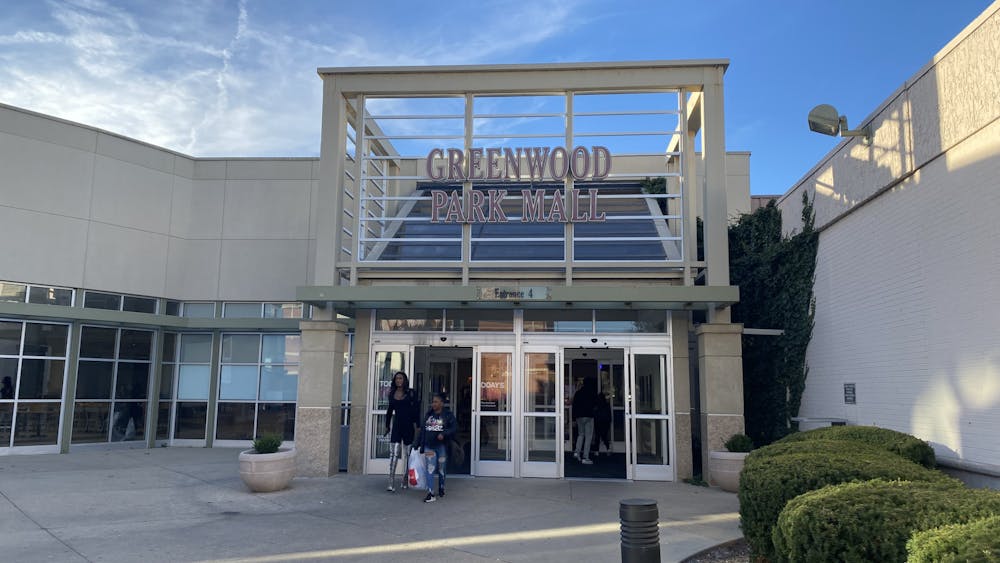Fall is a busy time for anyone looking for housing in Bloomington. Landlords are showing units, and students are hurrying to find a place they like.
But not being careful before you sign a lease can lead to problems during the time of the lease and even after. For some, the problem is as simple as knowing when and how to pay your rent. For others, a dispute with a landlord can escalate into a lawsuit.
That’s what happened to senior Bill Kenny and his friends.
Kenny and his roommates, Joe Widmar, Charlie Mattingly, Bryan Way and Brendan O’Neil, all seniors, had problems with their landlord throughout their sophomore year lease. They said the landlord entered the property without due notice, something that was mentioned in their lease. At one point he even called Widmar a derogatory name for having a messy bedroom.
But those incidents were minor compared to the legal entanglement they found themselves in during winter break.
Kenny stopped by the house during winter break before a trip to Texas; he was the earliest one to enter the house before classes resumed in January. When he walked in his home, he found that it had flooded.
A pipe had burst in a bathroom, causing at least 6 inches of standing water to fill part of the house.
Kenny contacted his other roommates. Mattingly called the maintenance man in charge of the house to take care of the problem. For two days, they waited for a response.
They said their landlord called them back and told them it was their responsibility to fix the burst pipe.
Their lease did not state that the tenant was required to make repairs, and in fact, it said the owner agreed to “replace or repair all property or furnishings due to fair wear or tear.”
Widmar and Mattingly came down to Bloomington and had the pipes fixed. Their landlord eventually served them a collection notice for the cost of repairs.
But the roommates took the letter to Student Legal Services and protested the charges. Eventually, they went to court against their landlord and won.
Their case is rare, but it is not unheard of. Student disputes with landlords can be as routine as failure to pay rent or being too loud, but knowing what you, as a tenant, can or cannot do and are or are not entitled to is important before signing a lease.
Indiana is not a tenant-friendly state. In a city such as Bloomington, where many of the tenants are only around for a few years, the likelihood the laws will change to favor students is unlikely.
Student Legal Services Director Randy Frykberg calls Indiana “the wild, wild west of contracts.” Any time two parties sign something in writing, that contract is most often binding, he said.
His colleague Stacee Evans, who represented Kenny and his roommates when they went to court, said in an e-mail, “Tenants are not a powerful constituency in Indiana, and so the laws haven’t evolved over the years to provide much in the way of protection and security to tenants.”
But landlords are not always the bad guys. They put up with late rent, messy tenants and noise complaints. They have to pay for upkeep, end-of-the-year cleaning and the mortgage on the property.
“It’s more than renting four walls, a roof and door,” Cedarview Management property manager Suzanne O’Connell said. “There are obligations, and there is a code of behavior that all landlords expect their residents to follow. It boils down to respect.”
Founder and owner of Renaissance Rentals Steve Bodi said there is a lot of trust between a landlord and his tenant. No one, especially the landlord, wants that trust to be broken when the tenant does not follow the lease.
“It’s personal, and it’s depressing to see something you’ve worked so hard to build and maintain or take care of, and you’ve rented a month, and when a terrible amount of damage is done, you realize the rent is not nearly enough (to pay for the damage),” he said.
Aside from damage to the property, one of the most common and easily avoidable problems for tenants is eviction. Eviction is a traumatic and emotional procedure for the tenant, but it is also a hassle for the landlord.
“We do file for eviction because it’s a business tool to show our customers that it’s really serious and has to be dealt with,” he said.
Before signing the lease, O’Connell said she recommends having a parent look at the lease his or her child is about to sign. Cedarview has a co-signer for each lease, someone who will make the rental payments in the event that the lessee cannot. In 99 percent of instances, she said, that guarantor is a parent or guardian.
But Frykberg said even parents sometimes are not aware of the laws about the tenant-landlord relationship in Indiana and are often not much help.
If you bring in a lease to Student Legal Services, they will read it on the spot and help you determine which clauses are standard and which are iffy, Frykberg said.
One of the most common mistakes that students make is thinking they are only responsible for their actions and not of their roommates. Most leases include a joint and several clause, which means that you are liable for anything your roommates do, which includes failure to pay rent, damages incurred and other violations of the lease.
O'Connell acknowledged that there is often a sharp learning curve that comes with student tenants. That inexperience is why Kenny and his roommates signed the lease without negotiating or questioning it.
“We were just freshmen trying to get a house for five guys,” Way said.
Frykberg said he thinks the rush to choose housing is unnecessary. It takes patience to avoid a bad deal, he said, but it pays off to be cautious.
“There are not homeless students in Bloomington,” he said. “You can eventually find a place to live.”
Bloomington offers many resources for students looking at prospective units. The Housing and Neighborhood Development, or HAND, of Bloomington carries a list of units and any problems or repairs they have had in the past. They will also make sure the house is up to code.
Having written documentation of any conversations between a landlord and tenant is key. Only written promises can be used to hold the other party to, which means that e-mails are better than phone calls if you want to make sure your landlord cannot go back on something they promised you.
And in general, students should always communicate if there is a problem or if they have a question.
“Open communication can make all the difference in avoiding conflict,” Evans said.
As students rush around this fall looking for a house and apartment, they should be aware of more than just how much it will cost and how close it is to campus.
“It’s where you live,” Frykberg said. “It’s very intimate.”
They should be aware they are choosing a place in which they will sleep, study and relax. They are choosing a home.
Rushing to rent has consequences
Get stories like this in your inbox
Subscribe





